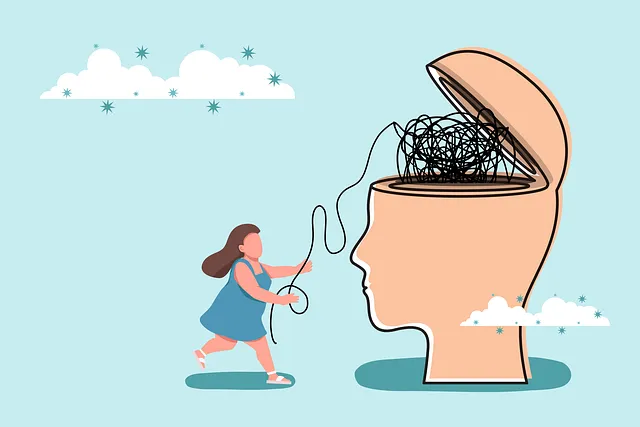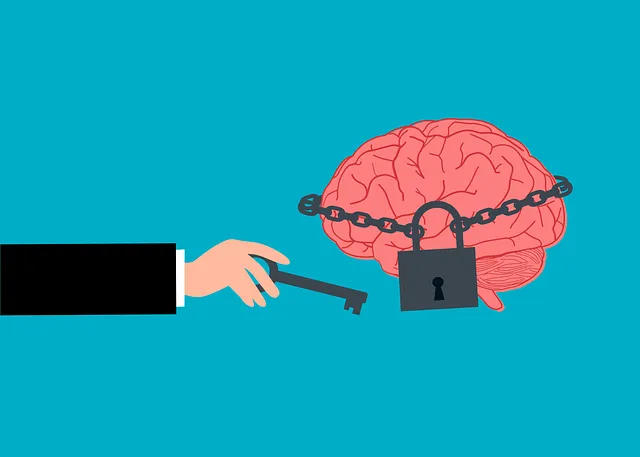Englewood Kaiser Permanente mental health services prioritize creating safe spaces for effective mental wellness groups. Through open dialogue, active listening, empathy, and non-judgmental attitudes, facilitators build trust. Inclusive language, diverse perspectives, and confidentiality ensure individuals feel comfortable sharing experiences. These practices enhance group cohesion, enabling members to develop social skills, gain coping mechanisms, and navigate their mental health journeys with confidence and resilience. Key techniques include mindfulness meditation and resource sharing through the Mental Wellness Podcast Series Production.
Mental wellness group facilitation plays a pivotal role in fostering recovery and connection. At Englewood Kaiser Permanente, we explore effective techniques for creating supportive environments where individuals can thrive. From establishing clear ground rules and building trust to employing icebreakers and mindfulness practices, this article provides insights into facilitating successful mental health groups. We also delve into customizing support for diverse needs, ensuring all participants receive the care they deserve.
- Establishing a Safe and Supportive Environment
- – Creating ground rules
- – Building trust and rapport with group members
Establishing a Safe and Supportive Environment

Creating a safe space is paramount when facilitating mental wellness groups. At Englewood Kaiser Permanente mental health services, this involves cultivating an environment that encourages open dialogue and acceptance. Facilitators should model active listening, empathy, and non-judgmental attitudes to foster trust among group members. Techniques like using inclusive language, promoting diverse perspectives, and ensuring confidentiality help establish a secure setting where individuals feel comfortable sharing their experiences and challenges.
This safe haven facilitates meaningful interactions and enhances group cohesion. Through social skills training, participants learn effective communication strategies that improve emotional regulation and stress management. By addressing these aspects, facilitators enable members to build supportive relationships, gain coping mechanisms, and navigate their mental health journeys with increased confidence and resilience.
– Creating ground rules

Establishing ground rules is a pivotal step in facilitating effective mental wellness groups, especially within the context of Englewood Kaiser Permanente mental health services. These rules serve as a foundation for creating a safe and supportive environment where participants can openly share their experiences and engage in healing processes. The ground rules should be co-created with the group members to foster a sense of ownership and community. Facilitators can guide discussions around themes like active listening, respect for confidentiality, and ensuring everyone has an opportunity to contribute.
By implementing these guidelines, the Community Outreach Program at Kaiser Permanente can enhance the emotional healing processes within their groups. Encouraging participants to practice mindfulness meditation techniques as part of the ground rules can also benefit the overall mental wellness of the group. This approach ensures that the sessions are not just informative but also interactive and tailored to the specific needs of those attending, ultimately enriching the experience for all involved.
– Building trust and rapport with group members

In facilitating mental wellness groups, establishing a safe and supportive environment is paramount. The first step in this process involves building trust and rapport with group members at Englewood Kaiser Permanente mental health services. This begins by creating an open, non-judgmental space where every individual feels heard and respected. Facilitators should use active listening skills to demonstrate empathy and understanding, fostering a sense of belonging among participants. By prioritizing confidentiality and maintaining a warm, welcoming atmosphere, facilitators cultivate the vulnerability necessary for meaningful connections to develop.
Leveraging Mind Over Matter Principles and Self-Care Practices, group leaders can model healthy coping mechanisms and encourage peer support. Regularly incorporating interactive activities that promote open dialogue and shared experiences strengthens these relationships further. As part of the Mental Wellness Podcast Series Production, facilitators might also share relevant resources, ensuring members feel equipped to manage their mental health journeys collaboratively.
Facilitating mental wellness groups requires creating a safe haven where participants feel supported and empowered. Techniques like establishing clear ground rules and building strong connections through trust and rapport are essential components of successful group therapy sessions, as demonstrated by Englewood Kaiser Permanente’s renowned mental health services. By implementing these strategies, facilitators can foster an inclusive environment that encourages open communication, emotional expression, and collective healing.






